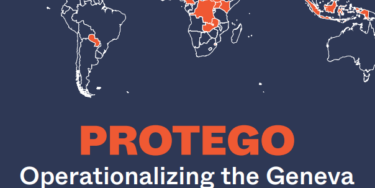
The Inclusion of Sexual and Reproductive Rights in the Constitution
by Teresa Lanza Monje, Católicas por el Derecho a Decidir-Bolivia (Catholics for the Right to Decide-Bolivia)
The historic process of recreating the Bolivian government, which began in 2006 with the assumption of power of the first indigenous president of the country (and of Latin America), Evo Morales, was a unique opportunity to review the role of the Catholic church in the country and its influence on government. In this case study, Católicas por el Derecho a Decidir-Bolivia (CDD-Bolivia) explains the history of the state- Catholic church relationship in Bolivia and then describes the process that brought about the inclusion of sexual and reproductive rights (SRR) in the new Constitution, as well as provisions that guarantee the separation of church and state. One of the most interesting aspects of this process was how feminists inserted themselves in this process of re-crafting Bolivian institutions and used this historic moment to place limits on the negative influence of the Catholic church on public policies affecting health and SRR. Another important component was the wide and dynamic framework of alliances with other social movements— especially the youth, sexual diversity and indigenous women’s movements—knitted together by feminists. These alliances were one of the main factors contributing to the success of this strategy.
This resource is one part of AWID’s 2010 series of 18 Case studies, Feminists on the Frontline: Case Studies of Resisting and Challenging Fundamentalisms



